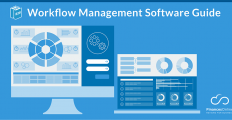
Source: pexels.com
Despite more than $35 billion in revenues during Thanksgiving weekend, corporate America is still preparing for a possible recession in 2023.
In a recent interview with CNBC, CEOs from top companies, including General Motors, JP Morgan, and Walmart, talked about interest rates, inflation levels, and geopolitics. Based on the interviews, most CEOs are putting out a conservative outlook for 2023. They’re also preparing measures to overcome whatever business challenges might come next year.
There are still debates around a looming 2023 recession among economists and investors. Businesses might also be having a hard time wrapping their heads around the idea of an economic slowdown since consumers are sending mixed signals: There’s concern about rising prices, but there’s also the optimism and drive to spend during the holidays. Amid these uncertainties, businesses of all sizes need to prepare to ensure business continuity if the United States does enter a recession.
Focusing on Spend Management
A few effective ways to survive a recession are to drive down costs, manage risks, and efficiently use company resources. To do so, companies need to focus on spend management and drill down into their expenses to identify which ones are priorities. Also, they have to look into how they can optimize revenues to make sure the company has continuous cash flow even during times of slow demand.
Another aspect is spend compliance. CEOs, CFOs, and other decision-makers need to track not only payroll-related expenses but also the money spent on company payments, supplier transactions, and vendor subscriptions, among others. They need to put these expenses under a lens and detect any anomalies, fraud, or compliance issues. If these sound like a handful, they become even more complex once you add in risk management considerations such as supplier assessment and contract management.
Data-Driven Spend Management
Analyzing spend management could be an arduous task if a business still depends on Excel files, invoices, and manual processes to aggregate spend data. For example, one study in 2017 revealed that 70% of companies use spreadsheets for a broad range of planning. But the same research found that 88% of spreadsheets in field audits contained errors.
Today, more and more businesses are transitioning their processes online and increasingly adopting cloud-based solutions. For finance teams, this includes using spend management software for data-driven decisions and strategies to effectively manage expenses.
Since the pandemic, more businesses have embraced the importance of data-driven spend management because they have to achieve financial sustainability. Many had to rethink their budgets at a time when reserves were low. Also, companies had to make difficult decisions on what aspects of the business are critical and justify the expenses and which ones are frivolous.
As demand grows, analysts project that the spend management software market could reach $39 billion in 2029. Market drivers include businesses’ need to effectively track requests and approvals for spending, make payments, and capture transaction details.
Benefits of Spend Management Software Features
The features of spend management software, which include AI, automation, and predictive analytics, enable finance teams to achieve better compliance, streamline submission and approvals, enhance process efficiency, and identify levers for cost reduction. As a platform that can quickly aggregate and filter data, finance teams can also rely on spend management software to conduct strategic sourcing, procurement analysis, and supplier management.
Moreover, the capability of the software to integrate with other enterprise solutions like an ERP provides better visibility to users. This means decision-makers can get the data they need for checking contracts, projects, and other company expenditures faster than rummaging through folders and files on their computers.
With the current mix of foreboding economic and geopolitical scenarios, data-driven spend management could once again play a crucial role in keeping businesses in good financial health.






















Leave a comment!